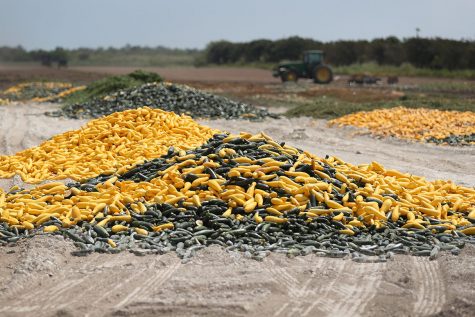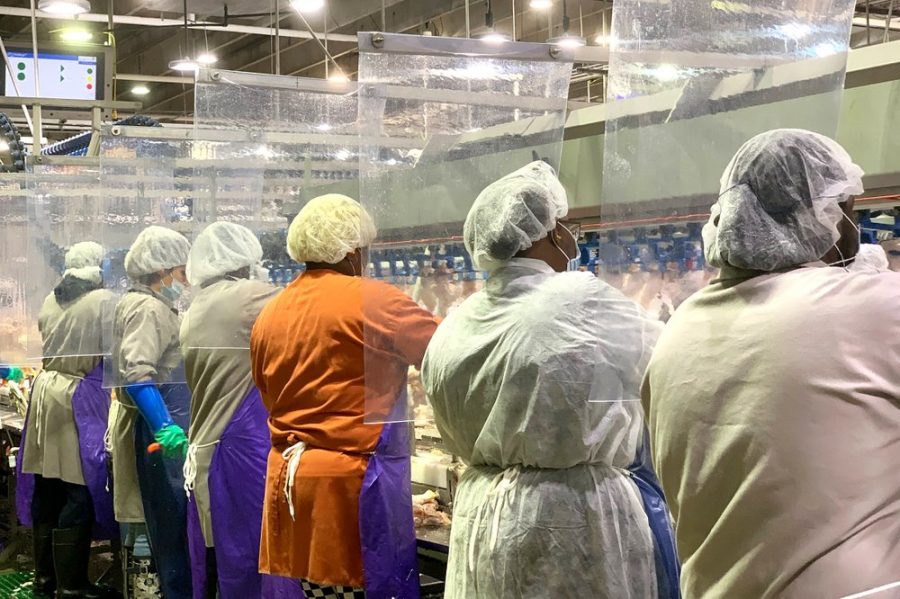US Food Chain Under Stress From the Coronavirus Pandemic
May 8, 2020
The Coronavirus pandemic has changed the way we live. As people have been social distancing, restaurants have closed and demand at grocery stores have skyrocketed. According to the US Department of Agriculture (USDA) this is a departure from the norm as in 2018, Americans spent $678 billion dollars at restaurants and fast food chains as opposed to the $627 billion dollars they spent at grocery stores. The Coronavirus will likely cause the restaurant industry to lose $255 billion dollars and 5-7 million jobs over the next few months, according to the National Restaurant Association.
Because traditional bulk buyers of food like restaurants and schools are currently closed and have no need to buy food, the American food supply chain has taken a huge hit. Fresh vegetables, gallons of milk, and other commodities have been dumped as a result. America’s largest dairy producer, Dairy Farmers of America, is dumping up to 3.7 million gallons of milk a day.

While repackaging food would mean less waste, it would also incur massive expenses for these large businesses, in addition to being time-consuming. Donating excess food is another attractive possibility for farmers, but food banks and charities have a limit to how much food they can store. Either way, farmers and producers are losing significant sources of income, which is especially pressing due to America’s surging unemployment rate. There have been over 30 million unemployment claims filed since mid-March.
Currently, suppliers are working with the government to make the logistical shift to retail. This has caused a slowdown in production across the United States, particularly in the meat industry. Due to Coronavirus outbreaks, meat plants across the United States have been forced to close, though President Trump recently invoked the Defense Production Act to force plants to stay open. Despite this action, over two million animals have already been culled in an effort to depopulate livestock populations due to the plant closures and backup in the supply chain. The meat industry in particular is difficult to manage during the pandemic as raising livestock for slaughter is a multi-month process. It would take time to slow or stop the production process at its source.
189 food processing plants and two farms have had reported cases of Coronavirus as of May 7th, 2020
According to the Food and Environment Reporting Network, over 189 food processing plants and two farms have had reported cases of Coronavirus as of May 7th, 2020. These outbreaks have the capacity to endanger workers and severely compromise the food supply chain. To best protect the food supply chain, the companies and US government should prioritize vulnerable workers by providing PPE and enforcing social distancing measures.
It is important to balance the health and safety of workers with the demands of American consumers. According to the US Department of Agriculture, in 2017, the average American consumed about 217 pounds of meat, a significant percentage of total food consumed. Currently there are shortages at fast food chains like Wendy’s and in stores across the US. Americans will have to accept the growing shortages by abiding by limitations grocery stores set on the amount of meat customers can buy and adapt to the changing landscape of America in a pandemic.












